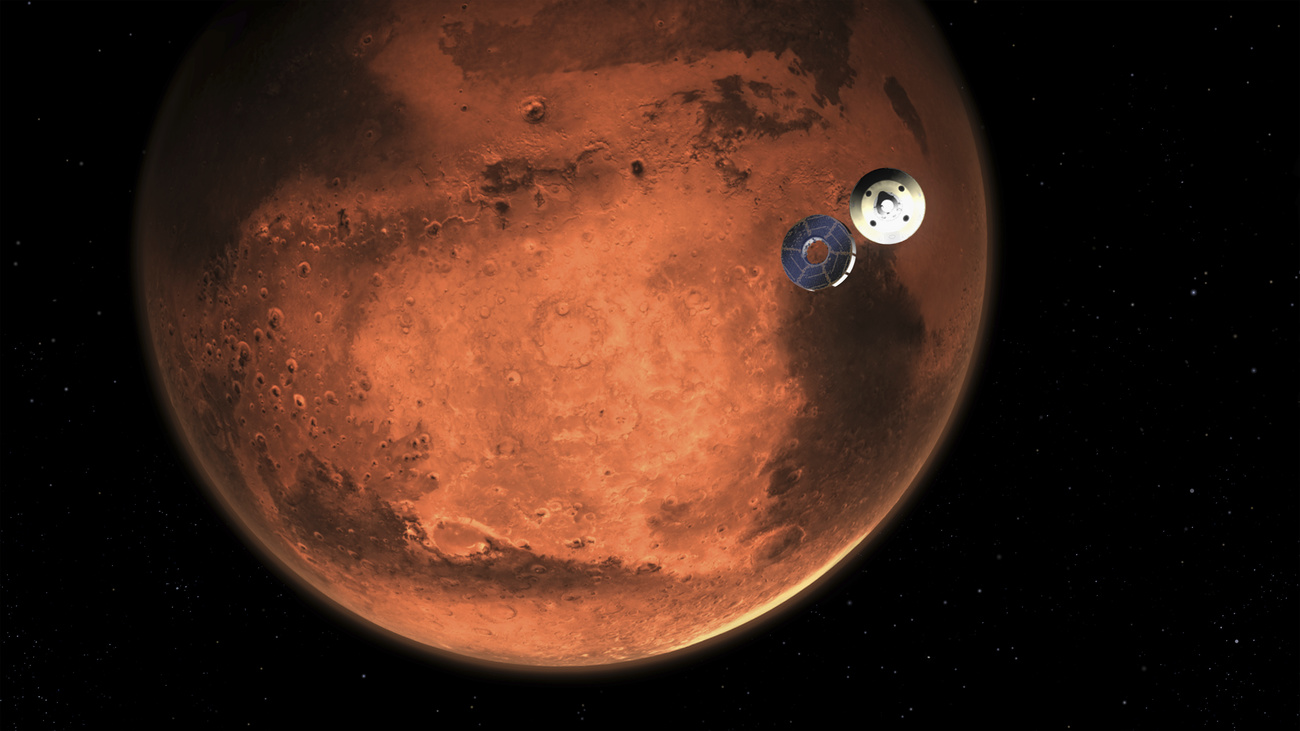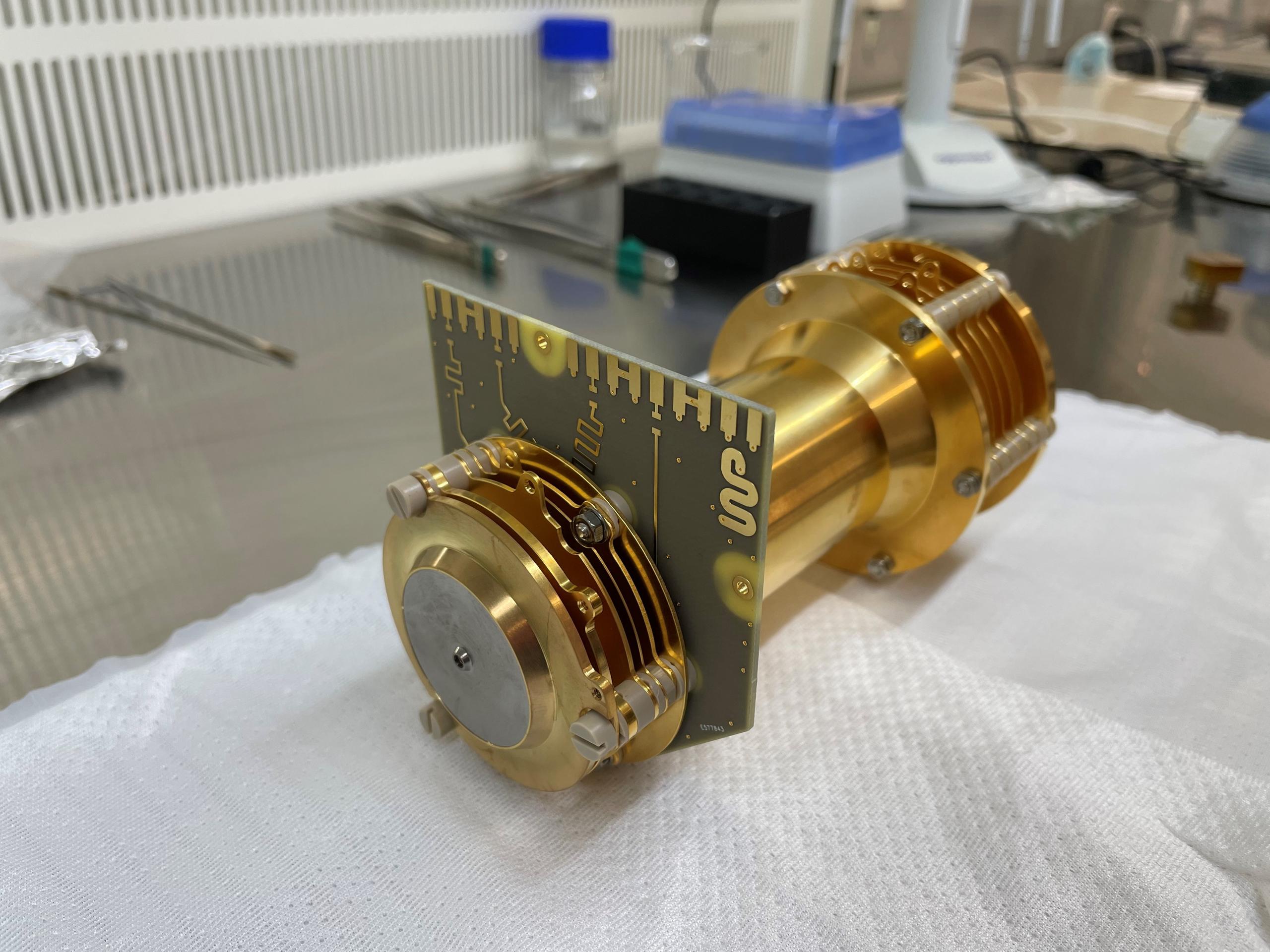Humans on Mars: possible, or a pipe dream?
Space missions with drones, discovery of extraterrestrial life, people on Mars. It's not science fiction, but scenarios that are becoming more and more realistic...
Mars the Red Planet, the intriguing. Mars the mysterious, the inhospitable. Mars the living and the dead. With its vermillion arc across the skies, the dry planet has fascinated humans since ancient times. Its reddish colour, caused by the iron oxide in which its rocky surface is rich, had already amazed the ancient Egyptians, who associated it with the God Horus. In Greek and Latin mythology, Mars is the God of war, but he is also regarded as the planet that embodies the life force of nature, paired with Venus, the goddess of beauty, in a constant opposition between love (i.e. life) and death that still characterises him today.
Is it worth trying to travel there, and set foot on the Red Planet? According to Pierre Brisson, president and founding member of the Mars Society Switzerland, technological advances will make it possible for humans to actually colonise Mars. But not everyone thinks it’s possible, or worth it. Astrophysicist Sylvia Ekström of the University of Geneva and designer Javier Nombela argue that our trips to Mars will remain a task for robots and that humans will never be able to live anywhere else but on Earth.
SWI swissinfo.ch will bring together these distinguished experts in a debate that will take place online on 15 April, at 16:30 CEST. Get more information here, and register hereExternal link to participate and ask them your questions. After all, we all want to know whether we should book a place on Mars, don’t we?
If you have any questions you would like to raise during the debate, please send them to me!

More
Humans on Mars: possible, or pipe dream? A live debate.
My colleague Marc-André Miserez, who will host the April 15 event, explains why Mars is having a “moment”, and why we should care about this new space race. In the summer of 2019, the Moon was everywhere, with the jubilee of Apollo 11, that famous “small step for man, but big step for mankind”.
In early 2021, the star is Mars, with the much-hyped landing of the American Perseverance rover in February. Shortly before that was the launch of the first Chinese rover (due to land in May) and the first probe from the United Arab Emirates. Soon there will be the Russians again (their Mars 3 probe was the first to land, in 1971), the Europeans, the Japanese and the Indians.
Rovers, probes, satellites… robots, in fact. Robots come up again and again. But what about the human element in all this?
Martian dream
Although Mars today appears inhospitable due to its thin atmosphere and massive presence of carbon dioxide, the latest discoveries suggest that the planet was once capable of harbouring life. The imprints of this past may still be visible today, which is why Perseverance’s research focuses on traces of microbial life, also thanks to Swiss technology.
But why is the exploration of Mars attracting so much attention? “Understanding whether life existed elsewhere in the Universe beyond Earth is a fundamental question of humankind,” reads the website of the European Space Agency (ESA).
Studying the evolution of the Martian surface could reveal important details about the Earth, both in terms of its past and future history. Explorations by robots also serve to prepare for a possible human mission.
Revolutionary exploration technologies from Switzerland
Although Mars today appears inhospitable due to its thin atmosphere and massive presence of carbon dioxide, the latest discoveries suggest that the planet was once capable of harbouring life. The imprints of this past may still be visible today, which is why Perseverance’s research focuses on traces of microbial life, also thanks to Swiss technology such as tiny motors that allow it to take soil samples.
Switzerland is also contributing to other technologies that make the search for life in space possible? My colleague Christian Raaflaub writes that the next revolution in space exploration could come from the University of Bern:
Imagine driving around in the same car since the 1970s. It’s a similar story to the outdated technology used by rovers to search for traces of life on Mars. Andreas Riedo recently told me about it in his laboratory. The astrophysicist – who heads the ‘ORIGIN’ research project together with chemist Niels Ligterink – is working with his team on a mass spectrometer. It doesn’t sound that spectacular, you might say….
But researchers at the University of Bern are about to revolutionise the search for life in space. Riedo and Ligterink are designing this instrument to measure the smallest traces of life since 2013.
“ORIGIN,” says Riedo, is now ten to a thousand times more sensitive than comparable instruments that are currently in use or soon will be.

More
Bern scientists hope to find the building blocks of life in space
It seems truly incredible that Bern, the city where I live, is about to make such a significant contribution to space research. But there’s even more happening elsewhere in Switzerland!
Thanks to our collaboration with the National Centre of Competence in Robotics Research NCCRExternal link, I had the pleasure of talking to Davide ScaramuzzaExternal link from the Robotics and Perception Group at the University of Zurich. With his team, Davide is investigating the use of special cameras for future space missions using autonomous drones.

SWI swissinfo.ch: Davide, could you tell us about your experience in developing autonomous drones for space missions?
Davide Scaramuzza: I have been working on autonomous drone navigation with onboard cameras and without GPS since 2009. Since then, with the Robotics and Perception Group of the University of Zurich, which I direct, I have been developing algorithms to make autonomous drones able to perform complex tasks, like exploring and mapping unknown environments for search-and-rescue missionsExternal link as well as outperformingExternal link human pilotsExternal link. These are technologies that are already playing a role nowadays (search and rescue, inspection of complex infrastructure, delivery of good) and will play an important role in future space missions (enter, explore, and map lava tubes on other planets).
What does your collaboration with NASA consist of? Can you give us some details?
We are currently collaborating with the NASA Jet Propulsion Laboratory to investigate the suitability of event-based cameras for future Mars helicopter missions. Event-based cameras are a novel type of camera with higher dynamic range, higher temporal resolution, and lower power consumption than standard cameras. Thanks to these advantage, event-based cameras promise to broaden the operational capabilities of future Mars helicopter missions. Sounds really futuristic! How could the search for life on Mars work with the use of drones?
According to recent studies, life on Mars might hide in the ice inside lava tubes, which were formed through volcanic processes. Drones represent the ideal way to enter and explore lava tubes in future Mars missions, and event-based cameras could play a crucial role there. Flying a drone in the dark and in high-dynamic range environments is something that was achieved and demonstrated in 2017 thanks to event-based cameras. I am so happy that this research eventually led to a collaboration with JPL!
But so could drones in space clearly advance space research?
Absolutely yes. Drones can cover longer distance in much less time than a rover. In the future, swarms of drones will be used both to identify environments suitable to host human missions as well as microorganisms.
What do you think? Are you fascinated by space and the search for life in the universe? Would you ever go and live on Mars if you had the chance? Let’s talk about it over a (virtual) coffee. Or get involved in this discussion, hosted by my colleague Marc-André.
More

In compliance with the JTI standards
More: SWI swissinfo.ch certified by the Journalism Trust Initiative












Join the conversation!